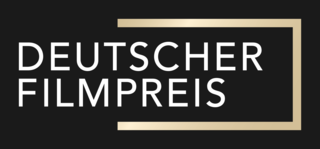List of West German films of 1958. Feature films produced and distributed in West Germany in 1958.
List of West German films of 1958. Feature films produced and distributed in West Germany in 1958.

The film industry in Germany can be traced back to the late 19th century. German cinema made major technical and artistic contributions to early film, broadcasting and television technology. Babelsberg became a household synonym for the early 20th century film industry in Europe, similar to Hollywood later. Early German and German-speaking filmmakers and actors heavily contributed to early Hollywood.
Andrew Sarris was an American film critic. He was a leading proponent of the auteur theory of film criticism.

Douglas Sirk was a German film director best known for his work in Hollywood melodramas of the 1950s. However, he also directed comedies, westerns, and war films. Sirk started his career in Germany as a stage and screen director, but he left for Hollywood in 1937 after his Jewish wife was persecuted by the Nazis.
New German Cinema is a period in West German cinema which lasted from 1962 to 1982, in which a new generation of directors emerged who, working with low budgets, and influenced by the French New Wave and Italian Neorealism, gained notice by producing a number of "small" motion pictures that caught the attention of art house audiences. These filmmakers included Percy Adlon, Harun Farocki, Rainer Werner Fassbinder, Peter Fleischmann, Werner Herzog, Alexander Kluge, Ulli Lommel, Wolfgang Petersen, Volker Schlöndorff, Helma Sanders-Brahms, Werner Schroeter, Hans-Jürgen Syberberg, Margarethe von Trotta and Wim Wenders. As a result of the attention they garnered, they were able to create better-financed productions which were backed by the big US studios. However, most of these larger films were commercial failures and the movement was heavily dependent on subsidies. By 1977, 80% of a budget for a typical West German film was ensured by a subsidy.

DEFA was the state-owned film studio of the German Democratic Republic throughout the country's existence.
Polish Film School refers to an informal group of Polish film directors and screenplay writers active between 1956 and approximately 1963. Among the most prominent representatives of the school are Andrzej Wajda, Andrzej Munk and Jerzy Kawalerowicz.

The German Film Award, also known as Lola after its prize statuette, is the national film award of Germany. It is presented at an annual ceremony honouring cinematic achievements in the German film industry. Besides being the most important film award in Germany, it is also the most highly endowed German cultural award, with cash prizes in its current 20 categories totalling nearly three million euros.

Harald Reinl was an Austrian film director. He is known for the films he made based on Edgar Wallace and Karl May books and also made mountain films, Heimatfilms, German war films and entries in such popular German film series as Dr. Mabuse, Jerry Cotton and Kommissar X. His directing output includes more than 60 titles. With his Edgar Wallace and Karl May adaptations, Reinl advanced to become one of the most successful directors in German cinema in the 1960s: with the four Karl May films he made between 1962 and 1965 alone, Reinl reached 32 million viewers.

Associated British Picture Corporation (ABPC), originally British International Pictures (BIP), was a British film production, distribution and exhibition company active from 1927 until 1970 when it was absorbed into EMI. ABPC also owned approximately 500 cinemas in Britain by 1943, and in the 1950s and 60s owned a station on the ITV television network. The studio was partly owned by Warner Bros. from about 1940 until 1969; the American company also owned a stake in ABPC's distribution arm, Warner-Pathé, from 1958. It formed one half of a vertically integrated film industry duopoly in Britain with the Rank Organisation.
This is a list of the most notable films produced in cinema of Germany.

The International Short Film Festival Oberhausen, founded in 1954, is one of the oldest short film festivals in the world. Held in Oberhausen, it is one of the major international platforms for the short form. The festival holds an International Competition, a German Competition, an International Children's and Youth Film Competition, the MuVi Award for best German music video, and, since 2009, the NRW Competition for productions from the German state of North Rhine-Westphalia.

The Devil Strikes at Night is a 1957 West German crime thriller film directed by Robert Siodmak and starring Claus Holm, Mario Adorf and Hannes Messemer. The film noir is based on the true story of Bruno Lüdke. It was shot at the Baldham Studios. The film's sets were designed by the art directors Gottfried Will and Rolf Zehetbauer. Location shooting took place in Berlin and Munich. It was nominated for the Academy Award for Best Foreign Language Film, as well as winning German Film Award for Best Fiction Film in its native country.
Arthur Maria Rabenalt was an Austrian film director, writer, and author. He directed more than 90 films between 1934 and 1978. His 1958 film That Won't Keep a Sailor Down was entered into the 1st Moscow International Film Festival. Two years later, his 1960 film Big Request Concert was entered into the 2nd Moscow International Film Festival. His career encompassed both Nazi cinema and West German productions. He also wrote several books on the 1930s and 1940s wave of German cinema.